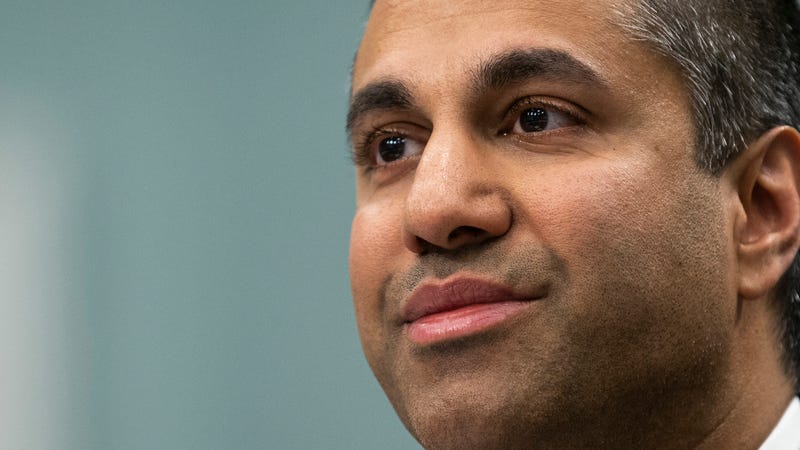 Photo: Getty
Photo: Getty
I’ve lost count of how many times net neutrality has “died” in the last year, but the last long-shot effort to override the FCC’s 2017 decision is now officially dead in the water. FCC Chairman Ajit Pai knows that this milestone is huge, and he’s using the opportunity to dance on the internet’s grave.
Last December, the Republican-led FCC used its power to repeal Title II protections that force telecoms to treat all traffic over the internet equally. Under the previous approach, a company like AT&T wasn’t allowed to do something like prioritize its own video streaming network and throttle the speeds of Netflix until it’s virtually useless. Now, telecoms theoretically could pull an asshole move like that and if you’re one of the millions of Americans who only have one option for an internet provider, there’s nothing you can do about it.
Net neutrality remained on the books through much of 2018, and its last chance of survival (outside of the ongoing court battles) hinged on the Senate and House using the Congressional Review Act to override the FCC’s decision. The Senate stepped up and did just that, but the House didn’t have the votes it needed to pass the CRA. The deadline for Congress to exercise its oversight powers with the CRA has now passed, and Pai released a statement on Wednesday celebrating the triumph of corporate power over the will of the people.
Below you’ll find Pai’s full statement in quote blocks along with line-by-line translations for proper context:
I’m pleased that a strong bipartisan majority of the U.S. House of Representatives declined to reinstate heavy-handed Internet regulation.
I’m overjoyed that enough Democrats in the House took money from the telecom industry and refused to pass the CRA, to say nothing of literally every Republican.
They did the right thing—especially considering the positive results for American consumers since the adoption of the Restoring Internet Freedom Order.
My old pals at Verizon were happy. And what makes them happy, makes me happy.
Over the past year, the Internet has remained free and open.
Consumers have barely noticed that anything has changed. For the last year, major telecoms have mostly refrained from taking advantage of my gift of dwindling oversight. However, legal experts warned because the fate of this whole debate is hardly set in stone: Our decision is being challenged in court by a swarm of internet companies. So if AT&T or Comcast had begun violating net neutrality principles right off the bat, the companies suing them might’ve convinced a judge to stop the FCC decision from going into effect.
Broadband speeds are up, with download speeds in the United States increasing more than 35% in 2018, according to a recent report from Ookla.
Broadband speeds increased when Title II protections existed, and they increased in the absence of those protections. It’s almost as if net neutrality had little to no impact on broadband investment in the first place. In fact, the big telecoms themselves have admitted to investors that Title II protections didn’t harm their business at all.
Internet access is also expanding, and the digital divide is closing.
If all goes to plan, 2019 will be the year when “internet access” starts to have the same meaning as “insurance access.” Sure, you might have “access” to the internet, but it doesn’t mean it’ll be any good or that you’ll be able to afford it.
For example, a recent report by the Fiber Broadband Association found that fiber was made available to more new homes in 2018 than in any previous year.
Industry leaders like Verizon and T-Mobile campaigned to kill net neutrality, and in a recent report, they came together under the name of a pseudonymous trade group to proclaim that everything is going great.
In short, the FCC’s light-touch approach is working.
In short, I’m not doing my job, and that’s why it was handed to me by the Trump administration in the first place.
In 2019, we’ll continue to pursue our forward-looking agenda to bring digital opportunity to all Americans.
That thing I said about “access” also applies to “opportunity.”
[FCC]
Share This Story